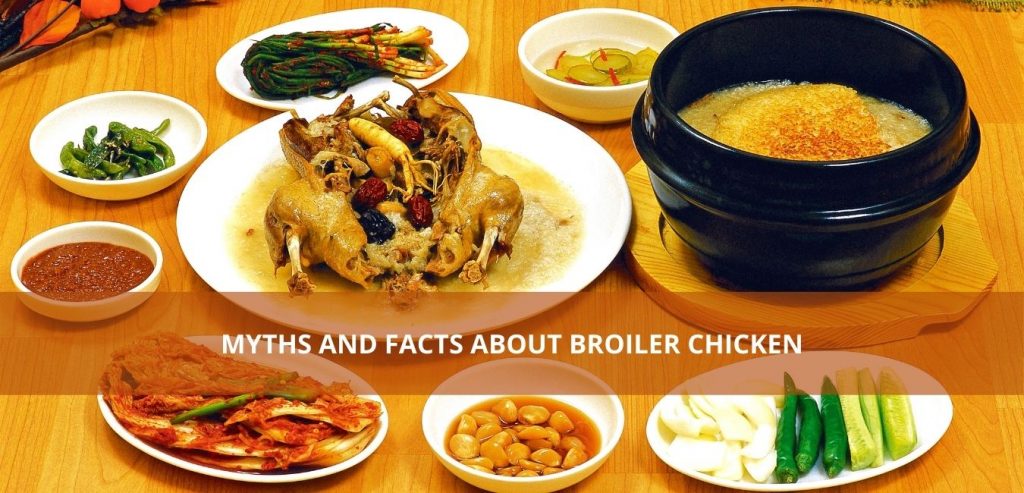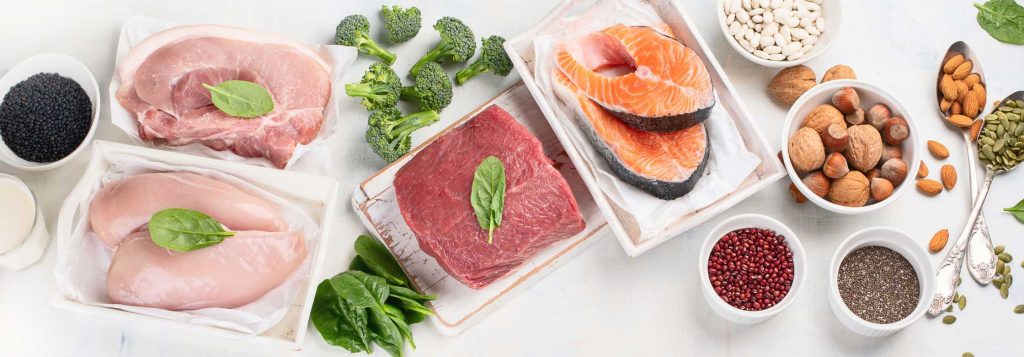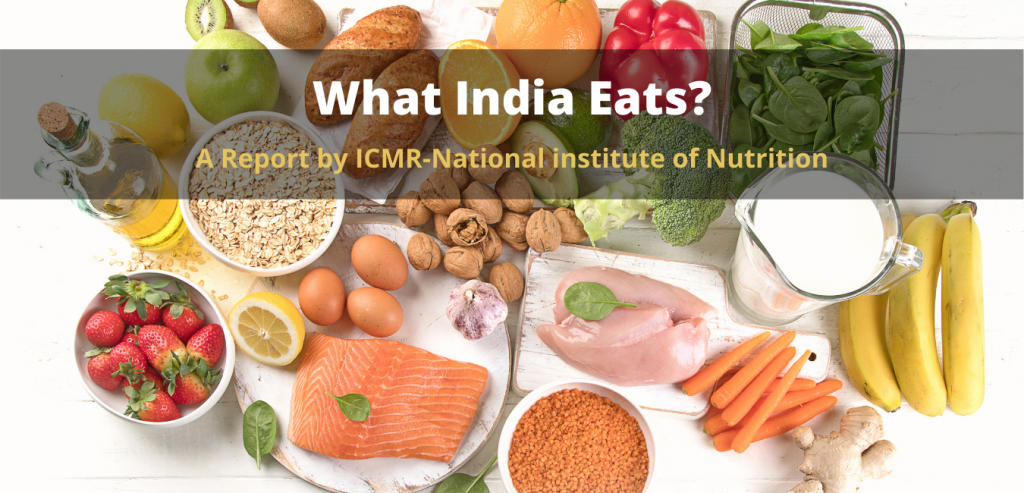MYTHS AND FACTS ABOUT BROILER CHICKEN

MYTHS AND FACTS ABOUT BROILER CHICKEN
Are you concerned about life after seeing an anonymous viral video talking about the ill effects of eating broiler chicken? How often do you give into internet write-ups claiming that poultry is bad for you?? Think again. The poultry sector has time and again been combating many “myths” related to the consumption of broiler chicken. To bust these myths and have a proper understanding of the concerns we only need to look for science-backed evidence from researches and poultry experts.
Myth 1 – Broiler Chickens are regularly injected with antibiotics.
Fact – Antibiotics are not administered indiscriminately as it is being made out by some random videos or activist groups. Recent advancement in the poultry industry ensures the birds used for breeding are of higher quality. The feeds are properly monitored, again ensuring good quality broiler chicken. Even disease prevention in birds is strictly taken care of to avoid an outbreak or bird flu. The recent advancement in the poultry sector can be attributed to the proper management of these aspects. No antibiotics are used on a regular basis as it could instead lead to the development of anti-microbial resistance. Antibiotics are strictly administered only for therapeutic purposes and in case of a disease outbreak. That too, this antibiotic administration is only after the prescription by a veterinary doctor. And in such cases where the antibiotics are dispensed, a proper withdrawal period has to be managed or fulfilled so as to confirm that the residue of antibiotics is not more than the acceptable levels in the resultant end product i.e. meat. Food Safety and Standards (Contaminants, Toxins, and Residues), second amendment regulation 2018, is currently in force*. It explicitly specifies two categories of antibiotics & veterinary drugs. Group I, having 19 such drugs which are strictly not permitted to be used at any stage of processing of poultry products, and Group II, has 103 antibiotics & veterinary drugs with their tolerable limits in the end product. The Food Business Operators shall strictly comply with all the provisions of these regulations.
*https://www.fssai.gov.in/upload/uploadfiles/files/Gazette_Notification_Tolerance_Limit_Antibiotics_01_08_2018.pdf
Myth 2 – There is the use of hormones or growth promoters in broiler chicken.
Fact – No form of hormones or growth promoters or any other unlawful things are given to broiler chicken at all. The current Indian Poultry Industry which is annually growing at the rate of 8-10% is primarily because the management of broiler chicken is up-to-date & taken care of by regulatory compliance. As discussed earlier, since the birds and their feed are of high quality the growth of the broiler chicken is rapid as compared to previous years. Hormone injections could lead to adverse reactions and taking cues from these animal activists have time and again strategically put up fake narratives on social media cautioning people about the use of hormones in the broilers. But in essence, there is no truth to this and the poultry industry has largely suffered because the internet is an unregulated area. The cost of hormones is costlier than the bird itself and there is no reason to add extra cost and increase the overall cost of production which is already high.
Myth 3 – Consumption of Broiler Chicken leads to Obesity.
Fact – Broiler Chicken like any other chicken has a good source of proteins along with vitamins and minerals. There is practically no carbohydrate present in chicken meat. Proteins are the most important nutrient and known as the building blocks of the body. When in effect, Obesity is generally caused when calorie intake is in excess of calorie output. In short, if you consume high amounts of energy (calorie-rich diet), particularly fat and carbs, but do not burn off the energy through physical activity, much of the surplus energy will then be stored by the body as fat*. This could eventually lead to Obesity. The serving size of broiler chicken (uncooked) contains just about 150 calories out of which a major proportion is only proteins & not fat or carbs. This makes it clear that there is no reason to think or fear that consumption of broiler chicken leads to Obesity.
*https://www.nhs.uk/conditions/obesity/causes/
Myth 4 – Consumption of Chicken leads to a surge in cholesterol levels.
Fact – One serving of Chicken has typically about only 80 mg of Cholesterol. Cholesterol, as such, is a highly misunderstood molecule. This is primarily because it is related to only cardiovascular disorders and other important functions of cholesterol are often missed out. The truth is Cholesterol plays a very important function in our body. It is fundamentally used in the production of essential hormones like testosterone, estrogen, cortisol, bile acids, and Vitamin D. It is also a structural molecule essential to every cell membrane. Given how important cholesterol is our liver can synthesize it intrinsically based on the intake of dietary cholesterol. This is called the feedback mechanism or regulation of cholesterol synthesis. Since your body requires close to 1 gm of Cholesterol on a daily basis. This mechanism ensures less of it you eat, more your body produces, and vice versa to maintain the equilibrium. This busts the myth that consumption of chicken increases cholesterol levels. Scientifically, red meats have more saturated fats and cholesterol as compared to white meat i.e. chicken and poultry. In fact, white meats have unsaturated fat that is cardioprotective.
| Table 1. Cholesterol Content of Selected Protein Foods | ||
| Beef, pork, and lamb cooked | 3 oz. | 75 mg |
| Chicken and turkey, dark meat, cooked light meat, cooked |
3 oz. 3 oz. |
75 mg 60 mg |
| Milk, whole 2% non-fat |
1 cup 1 cup 1 cup |
33 mg 18 mg 5 mg |
| Egg yolk | 1 large | 210 mg |
| Cheeses | 1 oz. | 25 to 30 mg |
| Liver and other organ meats, cooked | 3 oz. | 372 mg |
| Fish and shellfish, cooked | 3 oz. | 70 mg |
Source – https://www.pubs.ext.vt.edu/348/348-898/348-898.html
Myth 5 – Consumption of Chicken is Unsafe during COVID-19
Fact – There have been numerous cases of COVID-19 reported in India so far. Fearing this spread of the pandemic outbreak, people have adopted extreme measures from avoiding picking up packages instantly to sanitizing every household article and even cease eating non-veg. The fear has made people cautiously avoid meat and poultry after a few fake reports. People are even switching to veganism but do you think this is the strategy required against catching COVID-19?
The answer is NO.
What is most important is building your immunity. And high biological value proteins are key essential in maintaining an immune response. Hence avoiding poultry proteins is absolutely uncalled for.
Coronavirus is a respiratory infection that mainly spreads through air droplets. The predominant route of transmission is human to human as per WHO. Poultry or any food for that matter has not been found to be involved in the transmission of 2019 nCoV to humans in any report globally. Poultry products clearly do not cause COVID-19.
There is no evidence and reason to believe otherwise. Many organizations including the Ministry of Fisheries, Animal Husbandry, and Dairying along with FSSAI and WHO have issued statements that Poultry not found to be associated with the transmission of COVID-19 to humans in any reports so far. Consumption considered safe however avoid consumption of raw or undercooked animal products and basic practices of good hygiene and food safety should be followed properly.
So as long as you ensure that the food passes through necessary quality checks, is washed and cooked thoroughly, you should be guaranteed that what you are eating is absolutely safe for consumption. Like any other food eating non-vegetarian food is perfectly safe.
*Ministry letter to be attached (sent in the mail)
(*Some extra precautions can be taken. Make sure any meat is washed and cooked thoroughly at a high temperature.
*Eating hygienically prepared and well-cooked chicken is safe and does not cause the spread of the new coronavirus.
*Avoid keeping cooked meat unattended or outside refrigerator for long.)
Conclusion of recommendations:-
Most often inept or negative advice from unregulated sources like the internet could leave a bad taste for life. People find it easier to avoid controversial food category then look for correct information or alternatives. Most often as a Dietitian, I come across clients that consider Chicken consumption worse as compared to fast food like Pizzas, Burgers, and Vada Pav which is in fact grossly unfair. Always look for authenticated articles and researches to verify any internet claims that you read of. Chicken is one of the richest sources of protein and other nutrients. Having chicken as a part of a well-balanced diet is important to fulfill the daily requirement of good quality proteins.
Dt. Kamna Desai
(Clinical Dietitian & Public Health Expert)







Responses